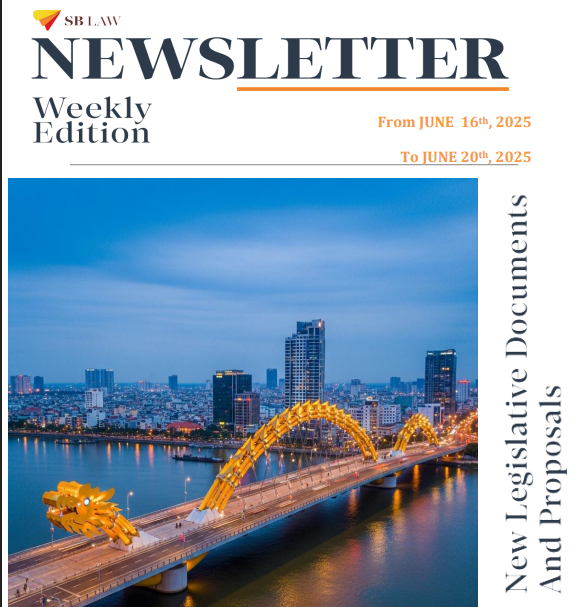In the vibrant landscape of business expansion, franchise agreements often serve as the bridge between established brands and aspiring entrepreneurs. However, the absence of comprehensive clauses detailing operational frameworks can lead to disputes, as evidenced by the recent challenges faced by an esteemed foreign language training company with over 25 years of experience in Vietnam, hereinafter referred to as "Y Center", (real name encrypted to protect client identity).

Y Center embarked on an ambitious journey to expand its footprint across Vietnam by leveraging the franchise model. While the initial vision was promising, the execution revealed critical shortcomings in the franchise contracts, ultimately culminating in operational and financial strains for both franchisor and franchisees.
One of the primary shortcomings identified in the franchise agreements lay in the absence of comprehensive provisions enabling the franchisor to exercise effective oversight over the daily operations of franchisees. This deficiency became particularly evident when franchisees neglected to update crucial information within the management system, including student enrollment figures and turnover data. Consequently, this lapse left Center without a solid legal foundation to assert its entitlement to royalty fees. The absence of a robust verification framework compounded the challenge, as Y Center grappled with accurately assessing the performance of its franchise network, thereby intensifying disputes between the involved parties.
Moreover, in the franchise agreement delineated the franchisee's exclusive right to conduct foreign language training courses within their designated territory. However, complications emerged when franchisees sought to engage in foreign language courses through collaborative business arrangements with local schools, thus prompting questions regarding territorial delineation. Balancing the optimization of franchisee business activities while safeguarding neighboring franchisees' exclusive rights posed a significant challenge for the franchisor, further underscoring the intricacies inherent in franchise management.
Furthermore, the absence of clear guidelines for coordinating marketing strategies exacerbated tensions between Y Center and its franchisees. While Y Center pursued a national marketing strategy, franchisees desired insight into how these strategies directly benefitted their individual territories. The lack of transparency regarding the alignment between the franchisor's national marketing plan and the franchisee's territory marketing plan shattered trust between the parties. Despite the mutual goal of promoting the brand and attracting students, the parties struggled to align their efforts due to ambiguous contractual terms. Disputes arose over the allocation of resources and the execution of marketing initiatives, emphasizing the critical need for transparent communication and collaboration in franchise partnerships.
The culmination of these issues manifested in a breakdown of trust and contractual obligations. Franchisees, feeling unsupported in their marketing endeavors, withheld licensing and royalty fees, citing the franchisor's alleged failure to fulfill its commitments. In the absence of predefined dispute resolution mechanisms, both parties found themselves at an impasse, with the viability of the franchise network hanging in the balance.
Perhaps the most critical oversight in the franchise contracts was the lack of provisions addressing termination scenarios. As disputes escalated, the absence of clear guidelines on student management, course quality assurance, and tutor fee resolution compounded the complexity of potential contract terminations. When Y Center considers terminating the contract before the expiry date, it must also address the rights and interests of students enrolled in the training courses held by the franchisee. Some students may seek reimbursement of their tutor fees, while others may wish to continue the course under direct management and responsibility of the franchisor. However, resolving this matter exhaustively requires cooperation from the franchisee. Failure to effectively address these issues can lead to a serious communication crisis, damaging the reputation and image of Y Center in Vietnam. Y Center faced the daunting task of navigating these uncharted waters without the necessary roadmap, further exacerbating the challenges of franchise management.
In hindsight, the case of Y Center underscores the importance of meticulous contract drafting and proactive relationship management in franchise agreements. Comprehensive clauses detailing operational protocols, marketing collaboration frameworks, and termination procedures are essential for mitigating disputes and safeguarding the interests of all stakeholders. However, beyond the contractual aspects, the experience of Y Center emphasizes the necessity of involvement with a long-term business plan for expanding business activities through the franchise agreement. Franchisors must be well-equipped with tools and experienced human resources to timely manage and control the entire franchise system. Simultaneously, franchisees must clearly understand the close linkage between their own business premises and the common reputation of the whole system to devise reasonable action plans.
As Y Center reflects on its experience, it serves as a cautionary tale for franchisors and franchisees alike. Transparent communication, diligent contract negotiation, and a commitment to mutual success are imperative for fostering sustainable and prosperous franchise partnerships. By learning from past challenges and implementing robust contractual frameworks, businesses can navigate the complexities of franchising with confidence and resilience.
Read more >> Franchise




